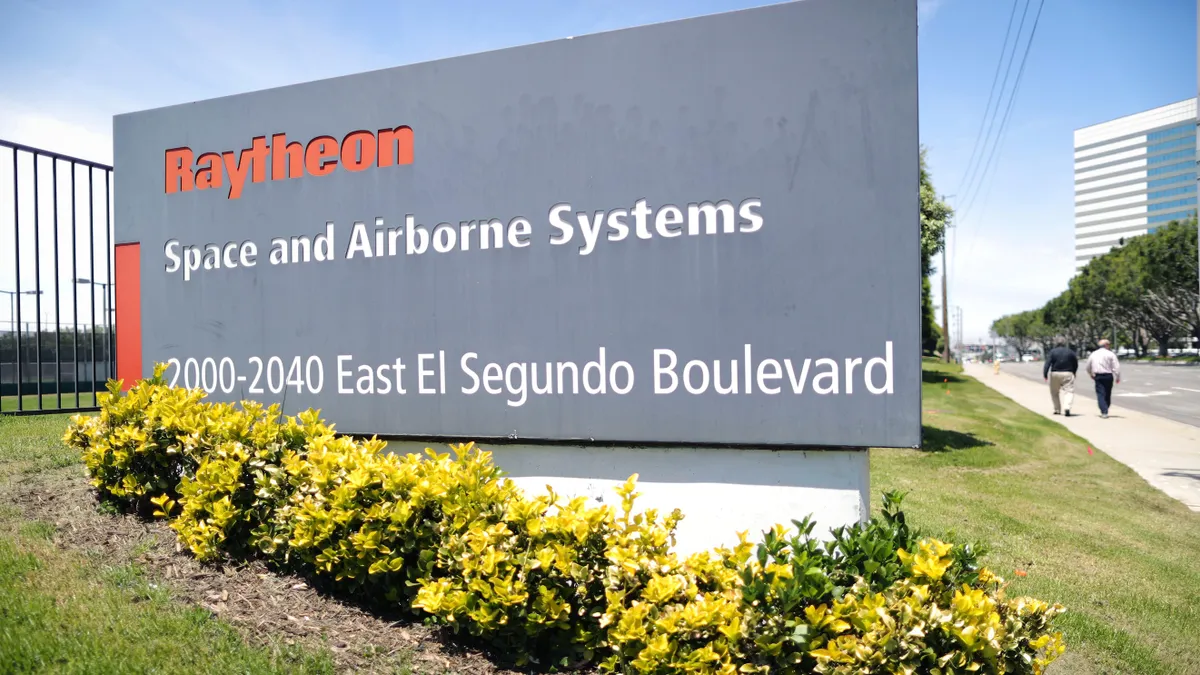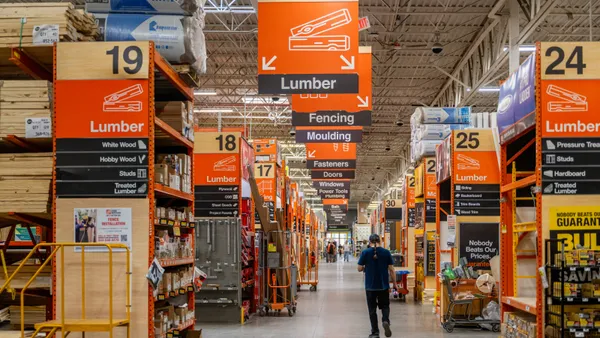Dive Brief:
- Raytheon Technologies’ dependence on small suppliers is exacerbating raw material shortages as many vendors struggle to recruit workers, CFO Neil Mitchill said on a Nov. 8 investors conference.
- Higher rates of turnover at smaller suppliers has led to delays and limited supply of materials such as castings and rocket motors. Around 46% of the defense contractors’ suppliers are considered a small business.
- “Think about the stress that gets placed on a small supplier when you've got high rates of turnover in the labor,” Mitchill said, adding he doesn’t expect a recovery until next year.
Dive Insight:
The defense contractor is working to improve visibility into its suppliers by using predictive analytics, entering into long-term agreements and keeping under-performing vendors accountable.
In order to “[get] its supply chain healthy,” Raytheon aims to address a $67 billion defense backlog, which is up $3 billion since the start of the year.
“I'm confident that we'll be able to work back some of the cost growth that we're seeing, entering into long-term agreements, working with suppliers that are not performing and making them be accountable so that we're not paying a higher price for things that we're not getting on time,” said Mitchill.
The company has specifically seen challenges surrounding casting deliveries, and is currently working with casting suppliers to try to find alternative ways to qualify materials and keep the parts moving, Mitchill said. Shortages will likely persist through most of next year before stabilizing.
Raytheon has also had trouble procuring rocket motors, which goes on a missile later in the manufacturing process. The company expects disruptions to continue through 2024 and it’s working with suppliers to help move materials to Raytheon’s factories.
Although Raytheon is not yet “out of the woods,” Mitchill noted that he is encouraged by the ongoing dialogue and improved visibility. Supply of semiconductors and microelectronics has stabilized somewhat in part due to longer-term agreements.
“I'm confident that we'll be able to work back some of the cost growth that we're seeing, entering into long-term agreements, working with suppliers that are not performing and making them be accountable so that we're not paying a higher price for things that we're not getting on time,” he said.















